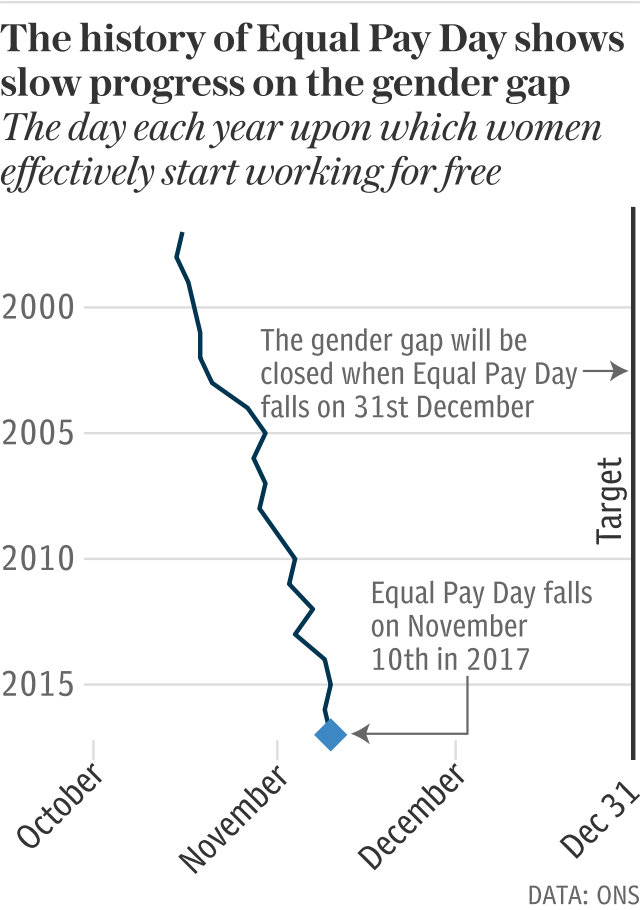Equal pay disputes: which employers have been forced to pay up so far?
This June, it will have been 50 years since sewing machinists at Ford’s Dagenham plant halted production, walked out and transformed the lives of working women forever.
Led by Rose Boland, Eileen Pullen, Vera Sime, Gwen Davis and Sheila Douglass, the 1968 strike began when the machinists – who predominantly made car seat covers – were informed their jobs were considered ‘less skilled’, while men at the plant were considered skilled workers. That inequality was reflected in pay: women were receiving 15% less than the rate given to men.
As anybody who has seen the film or musical Made In Dagenham will know, the actions of those women eventually led to Barbara Castle’s creation of the Equal Pay Act in 1970. It was a landmark moment for industry, but as is becoming clearer and clearer by the day in 2018, it didn’t get close to consigning salary sexism to history.

This morning, Tesco is the latest industry goliath shamed for mistreating its female workforce. Britain’s largest private sector employer is facing a potential equal pay claim of £4bn. On behalf of nearly 100 shop assistants who claim they are paid up to £3 an hour less than their male warehouse workers, law firm Leigh Day has lodged what would be Britain’s largest ever claim.
Leigh Day said the most common rate for women was £8 an hour whereas for men the hourly rate can be as high as £11 an hour. If successful, up to 200,000 staff could be paid up to £20,000 in back pay over six years.
From actors to sportspeople to BBC presenters, equal pay disputes have dominated the news over the past few weeks, and they won’t go away. By April, all UK companies with more than 250 employees are legally required to publish their gender pay gap data, making the matter a talking point in workplaces around the country.
What has happened so far?
Tesco is not the first major supermarket to find itself accused of rife salary sexism. Building over the last four years, Leigh Day has brought a claim against Asda on behalf of 17,000 former and current employees, arguing that work in stores is of equal value with jobs carried out by men in distribution centres, and should therefore be paid equally. The case has been dubbed “Made In Dagenham for the 21st Century”.
In Asda’s owner, Walmart, the women involved in the case are taking on the world’s largest company, one with unlimited legal funds, and it isn’t proving easy. Walmart’s prestigious team of lawyers (which has included Lord Falconer QC) is appealing every single win by an Asda employee, delaying an overall result by months.
An appeal hearing is due for the Asda women in October. Should they win, female workers at Sainsbury’s will feel better about their own case. Originally lodged in 2015 by three Sainsbury’s workers, nearly 1000 employees have now joined the action – also lodged by Leigh Day – that demands the same thing: for shopfloor jobs (mainly held by women) to be judged as of equal value to distribution centre jobs (mainly held by men).

Away from the retail sector, in 2013 Birmingham City Councilsettled an equal pay claim from women employed as cleaners, cooks and carers, who were paid far below men working as bin collectors and road workers. The council, which is the largest local authority in England, is liable for over £1 billion. As a result it was forced to sell the National Exhibition Centre and make dramatic cuts across the authority.
Further north, last month that Glasgow City Council confirmed it would negotiate and settle around 6,000 equal pay claims from female workers, potentially concluding more a decade of legal battles. Female carers, cleaners, catering staff, classroom assistants and clerical workers were among the employees who said they were paid £3 per hour less than their male colleagues.
Councils across Scotland were ordered in 1999 to “harmonise pay for employees and address historic inequalities,” though all but one of the 32 authorities missed the imposed 2004 deadline. In 2017, 13 years on, The Accounts Commission said around £750m had been spent settling claims, but more than 27,000 remained active. Edinburgh sold off land and spent £20 million of reserves to meet its bill, while South and North Lanarkshire both settled claims worth more than £70 million respectively.
In Berkshire, it was reported last month that Reading Borough Council has spent more than £3 million on payouts for women – mainly care workers, admin staff and cooks – working in their authority, after claims dating back to 2003. More are expected.
And, in the most high-profile case so far, the BBC has reportedly received around 230 individual pay claims in recent months, though it is not known how many grievances were related to sexism. An independent audit of on-air talent published earlier this month revealed a 6.3% pay gap but “no evidence of gender bias.” Off-air, a report in October found the gap was 9.3%.
In January, BBC journalist Carrie Gracie resigned from her role as China editor after discovering she was earning 50% less than two male counterparts. She told a parliamentary select committee that bosses justified the discrepancy by telling her she was “in development”, belittling the work of one of the corporation’s longest-serving reporters.


